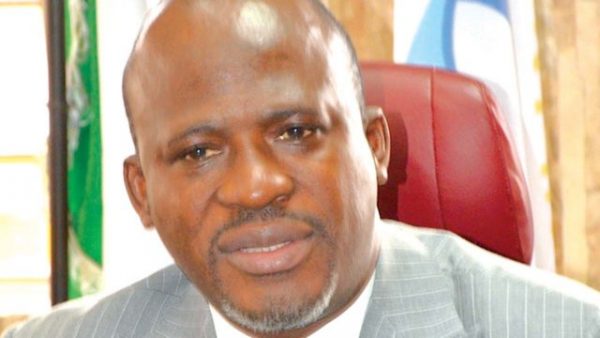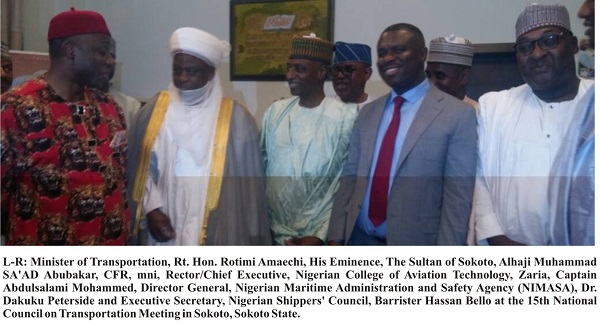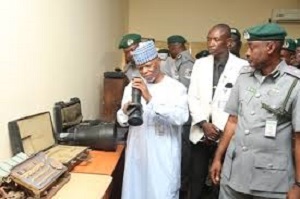43% Of Capital Projects In 2018 Budget Have No Impact On Nigerians – BudgIT
A civil society group, BudgIT, has said that about N744.5 billion, or 42.9 per cent of a total N2.65 trillion provision for capital projects in the 2018 Appropriation Bill currently before the National Assembly for approval may have no direct impact on Nigerians.
It argued that of the total 9,331 projects included in the proposed budget as capital line items, allocation of about N1.72 trillion, or about 20 per cent of the N8.612 trillion budget outlay went to one administrative service or the other that hardly impacted directly on Nigerian lives.
Of this number, about 2,136 projects received total allocation of N11.5 billion, 3,797 received allocation of N101.8 billion; 1, 193 for N90.5 billion; 1,715 for N383 billion and 490 for a total N1.13 trillion, it explained.
The group said about 95 per cent of the total number of capital projects attracted allocations of N500 million or below, and were “accompanied with vague descriptions that will prove difficult to monitor or track in physical and auditing terms.”
Further analysis, the group noted, showed that only 26 per cent of capital allocations to the ministries have direct links to the written, medium-term aspirations of the government as highlighted in the Economic Recovery and Growth Plan, ERGP.
Such allocations that could be tracked by civil society groups and other budget monitoring agencies were highlighted under the Ministries of Health, Education, Agriculture, Transportation, Niger Delta, Water resources, Science, Works, Power and Housing.
Throughout the budget provisions, BudgIT said, a significant amount of capital allocation fell under certain generic names as “Welfare packages”, “Sporting activities”, “Drugs and Medical Supplies”, “Medical expenses”, “Software acquisition”, “Monitoring & Evaluation”, “Budget Preparation”, “Access to Credit”, “Food & Agricultural policies”, “Budget Preparation” and “International Training”, etc. without detailed descriptions on the number of beneficiaries.
Some of the administrative items included procurement of exotic official cars, reconstruction and rehabilitation of government offices, staff training, consultancy services, purchase of furniture for office and residential quarters and acquisition of computer software and hardware by Ministries, Departments and Agencies, MDAs.
“Given that funds marked for capital expenditure will be largely borrowed (as highlighted in the proposed 2018 budget), it is disheartening to discover that most line items therein show a great disconnect from the developmental goals of government, as stated in its Economic Recovery and Growth Plan, ERGP,” the group said in a statement sent to the media on Tuesday by its communications team leader, Abiola Afolabi.
In a pre-election year, Mr. Afolabi said, BudgIT expected that capital projects would be devoted solely to projects with direct developmental impact on the larger Nigerian population.
He said given the country’s tight fiscal condition and meagre economic growth at the moment, its review revealed that there were several items in the capital budget that should have been excluded, particularly administrative capital items that would benefit only politicians and civil servants, who constitute less than one per cent of the Nigerian population.
The group said its findings also showed that the scope of the country’s needs in terms of developmental capital projects include the acquisition, upgrading, construction and maintaining of physical assets, namely hospital, schools, roads, railways, power plants, street lights, boreholes among others.
It said administrative capital items that cannot be easily accessed by the Nigerian public, or have little or no developmental impact on the people, have been allowed to flood the budget.
The group, which decried attempts by MDAS to mask several administrative items under a bloated capital component of the draft appropriation, said the budgeting system, which allowed “one-liners” without details, gives room for financial indiscretion and the potential abuse of funds.
“It is antithetical to what the government continually professes to stand for,” BudgIT said. “Most crucial is that the Federal Government is yet to come out plainly on the amounts spent on Capital items in the 2016 and 2017 financial years.
“While the Ministry of Finance repeatedly claims about N1.2 trillion has been released, the Budget Implementation Reports released by the Budget Office of the Federation show otherwise.”
The group said despite several letters sent seeking clarification on details of the projects funded, the Ministry of Finance is yet to respond with the details. The claim could notbe immediately verified at time of filing report.
Copyright MMS Plus.
All rights reserved. This material, and other digital content on this website, may not be reproduced, published, broadcast, rewritten or redistributed in whole or in part without prior express written permission from KINGS COMMUNICATIONS LIMITED.








